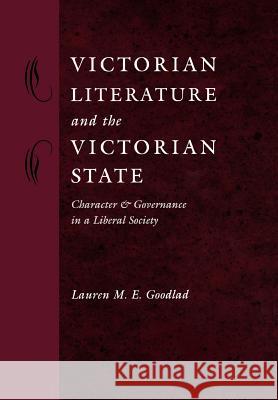Victorian Literature and the Victorian State: Character and Governance in a Liberal Society » książka
Victorian Literature and the Victorian State: Character and Governance in a Liberal Society
ISBN-13: 9780801869631 / Angielski / Twarda / 2003 / 298 str.
Studies of Victorian governance have been profoundly influenced by Discipline and Punish, Michel Foucault's groundbreaking genealogy of modern power. Yet, according to Lauren Goodlad, Foucault's analysis is better suited to the history of the Continent than to nineteenth-century Britain, with its decentralized, voluntarist institutional culture and passionate disdain for state interference. Focusing on a wide range of Victorian writing--from literary figures such as Charles Dickens, George Gissing, Harriet Martineau, J. S. Mill, Anthony Trollope, and H. G. Wells to prominent social reformers such as Edwin Chadwick, Thomas Chalmers, Sir James Kay-Shuttleworth, and Beatrice Webb--Goodlad shows that Foucault's later essays on liberalism and "governmentality" provide better critical tools for understanding the nineteenth-century British state. Victorian Literature and the Victorian State delves into contemporary debates over sanitary, education, and civil service reform, the Poor Laws, and the century-long attempt to substitute organized charity for state services. Goodlad's readings elucidate the distinctive quandary of Victorian Britain and, indeed, any modern society conceived in liberal terms: the elusive quest for a "pastoral" agency that is rational, all-embracing, and effective but also anti-bureaucratic, personalized, and liberatory. In this study, impressively grounded in literary criticism, social history, and political theory, Goodlad offers a timely post-Foucauldian account of Victorian governance that speaks to the resurgent neoliberalism of our own day.











